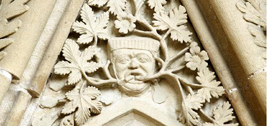Key Stages 1 & 2:
Key Stages 2 & 3:
Key Stage 3:
|
Music - key stage 3Teachers notes
Integration of practiceDeveloping knowledge, skills and understanding through the integration of performing, composing and listening Cultural understandinga Understanding musical traditions and the part music plays in national and global culture and in personal identity. Critical understandingUnderstanding musical traditions: The way we respond to music is determined to a large extent by our culture. We need to learn how and why music is different if we are to appreciate unfamiliar music. Communicationa Exploring how thoughts, feelings, ideas and emotions can be expressed through music. Performing, composing and listeninglisten with discrimination and internalise and recall sounds Reviewing and evaluating Pupils should be able to: Range and content a range of live and recorded music from different times and cultures Curriculum opportunitiesmake links between music and other subjects and areas of the curriculum.
|





w130.jpg)

